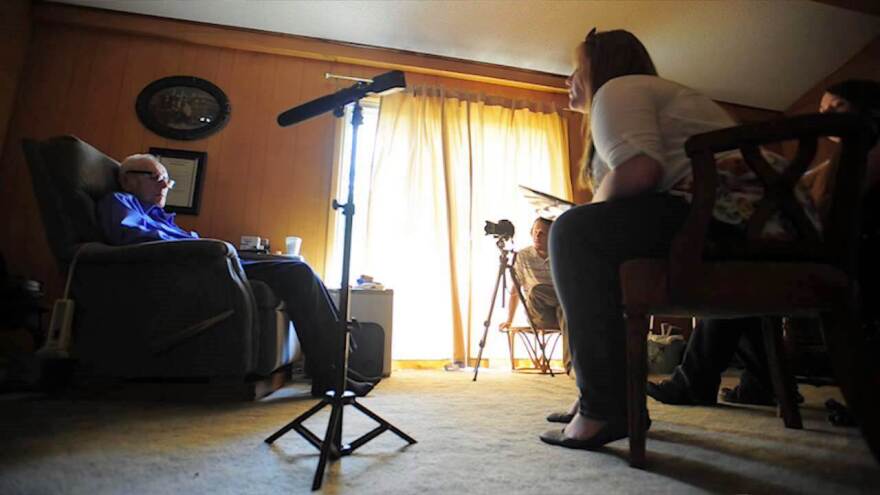In this edition of North by Northeast, KETR's Mark Haslett speaks with Andrew Baker, a professor at Texas A&M University-Commerce about the East Texas War and Memory Project, which documents the personal stories of veterans from our military and their loved ones.
Mark Haslett: The stories that come out of war are human stories. In school, we learn dates and battles and the names of leaders. But the format of history that we remember from textbooks isn’t designed to record the subjective experience of individuals. Maybe at most, there’s a sidebar presenting the perspective of someone who experienced the war as a combatant or as a civilian. But there are many different types of history. Oral history is as old as spoken language itself. At Texas A&M University-Commerce, the East Texas War and Memory Project collects oral histories of veterans and their loved ones so that these important stories can be shared with the world, and with the future. Andrew Baker is a history professor at A&M-Commerce.
Andrew Baker: The East Texas War and Memory Project started in 2013 in the Honors College with a group of students that were researching and looking into the history of World War II, and they were interested in doing follow-up interviews with these veterans. And so that’s what got the program started interviewing veterans to get their perspective on their service, what it meant, and a lot of ways social history, what it means to be in the army, in the military. Most of our interns will do five or six interviews a semester. They index them, which is partial transcription. They go through and make sure we have a written document version of it, and then all the interviews go online to Northeast Texas Digital Collections, where they’re available to the public.
Haslett: The interview process is a simple one. Interviews usually happen at the subject’s home, although people are welcome to come to campus for their interview if they prefer. Students use a video camera to record each interview. Later, each interviewee receives a DVD copy of the interview. Any person whose life was affected by war or military experience is eligible to be interviewed. Most interview subjects are veterans, but you don’t have to be. Family members are welcome – and in fact, one of the most powerful things about the project, Baker says, is that through this format, people have a record of their loved ones that they couldn’t have got in quite the same way otherwise.
Baker: A lot of what we see that gets us the most engagement from the public, is that these are, fundamentally, family histories. We’re interviewing people’s grandparents, fathers, or husbands/wives, and so it provides them with a family history that they can’t get on their own because a lot of these conversations within the family, these issues don’t come up. As outsiders, when we are able to talk, we have our question list we go through. A lot of times the veterans are more willing to talk to us. You know it sounds kind of strange, but because they don’t have that personal connection, they’re willing to open up a little bit more. But more broadly, a lot of what we’re doing is regional history, and so when people come in from the community doing genealogy or wanting to have a sense of what was going on in the region. And also in the long-run getting more involved in secondary education in the classroom, bringing these in for teachers looking to teach Vietnam War or World War II, to have a local person who experienced, lived through it, saw combat or didn’t, to have students listen to that and see someone actually relating the history, that makes a personal connection to them.
Haslett: If you or someone you know would be interested in participating in the project, you can contact Baker through the Texas A&M University-Commerce Department of History. For KETR News, this is Mark Haslett.



